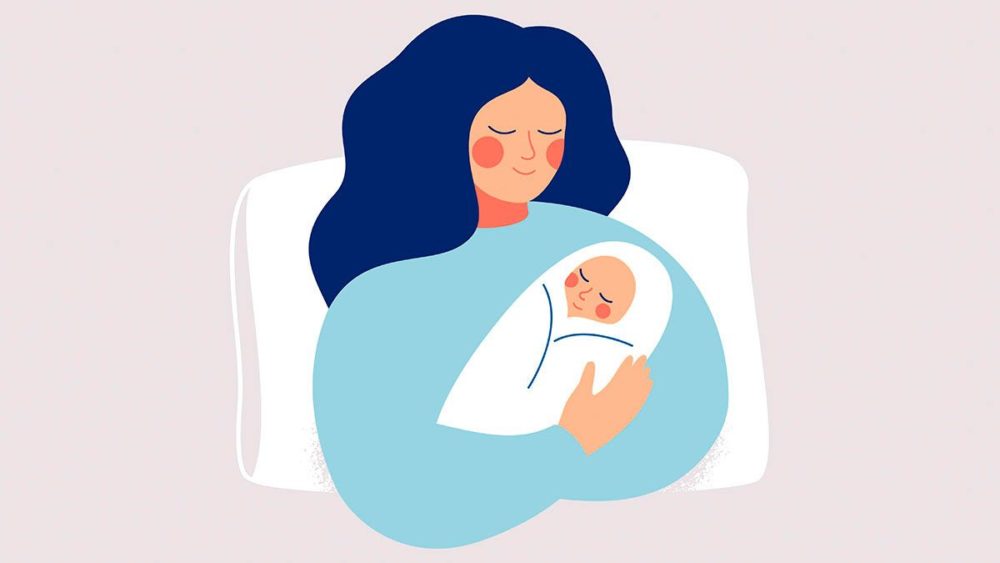Being a mother shouldn’t damage or limit the careers of women. Any reasonable person should agree to that. But reality is still unfair. To no fault of her own, a woman could face substantial career damage as she becomes a mother. What can the law, research, and opinions of working mothers in Egypt tell us about this? You’re about to find out.
Maternity Leaves in Egypt’s Law: The Minimum Requirements
According to Lexology, the most recent updates to legislation surrounding Egyptian maternity leave occurred in 2016. As of now (March 2021) the law stipulates:
- Women who have been contributing to social insurance for at least the previous ten months are entitled to three months (90 days) of paid maternity leave following the births of their first three children.
- During this 3-month period, a woman is paid 75% of their salary.
- Following their return to work, a woman is allowed two half-hour breaks or one full-hour break to dedicate to nursing their child.
- If the employer has more than 50 employees, a woman has the right to claim up to 2 years of unpaid leave.
- If the employer has more than 100 employees, they are either required to provide an in-house crèche for employees’ children or pay nursery fees for the child until they can enter the public schooling system.
But these stipulations dictate only the minimum benefits that employers are legally required to offer their employees. Other companies offer more generous maternity leave benefits. For instance, the software company VMWare states on their website that an extra 45 days available to new mothers “to allow for time to bond with the baby.” The blogger Nada Abd ElKader recently published an article praising PepsiCo Egypt’s increase of paid maternity leave from three to four months.
“If they like you, they’ll probably give you a job whenever you decide to come back. Yet others are often pressured to put their kid in a nursery and return to work.”

Image via familyeducation.com
Is the Egyptian Law on Maternity Leaves Enough?
What Women We Spoke To Think: Uniform Enforcement Is the Problem
In conversations with a couple of working women who became mothers, the general consensus is that the law itself is seemingly sufficient. The sporadic and unreliable enforcement of this law is the problem.
Women feel pressured to return to work as soon as possible, for fear of losing their job. Unfortunately, it seems that it’s common for women to feel unsupported by their employers following pregnancy. Head of Donor Relations at the American University in Cairo (AUC), Mai Abou Samra, admitted that her positive experience with maternity leave was something of an anomaly amongst her social circle.
“I don’t think that the law itself needs to improve, I think that people need to start abiding by the law, and following the law. We do have up to two years of maternity leave, but companies abuse it and threaten the woman, and make her feel like she needs to come back. It’s only rare cases where it’s the same as me where I had a cover [temporary hire] and I knew that she was there until I decided to come back or not. I don’t think they need to change the law, they just need to enforce it.”
The disparity of organizations abiding by the law is apparently not only varied from workplace-to-workplace, but also, according to a teacher at an Egyptian school who chose to remain anonymous, from person-to-person. She emphasized that although it was never explicitly stated, there seemed to be a pattern of inconsistency concerning the amount of time each employee was approved to claim.
Nursing, Early Childcare, and Advancing in Egypt’s Startup Ecosystem
The provision of quality early childcare and education facilities is particularly crucial. According to statements released by the IFC, OEDC, UN, and WorldBank, increasing access to affordable childcare would exponentially increase opportunities for and harness the potential of young, ambitious female professionals. Each claim that teams of employees with access to affordable daycare options would be more diverse, productive, and able to focus on their work.
Moreover, they argue that the children themselves would benefit from the educational and social exposure of early childcare institutions. Yet, the mutual benefits shared by female professionals, employers, and children alike undoubtedly dependent on the quality of care provided – which is very difficult to standardize and regulate on a large scale.
What could stop mothers-to-be, and indeed mothers, from advancing in the Egyptian startup ecosystem is that the law restricts the obligation of care to employers that have more than 100 employees in total only. So, startups with less than 100 employees are left to determine this on their own without any imposed legal requirements.
Additionally, women are only able to claim up to 2 years of maternity leave if their company has 50 or more employees, and are only guaranteed daycare if they work somewhere with over 100. This introduces an obvious incentive for women to seek jobs only at larger companies. Explicitly, these stipulations to the law could act as a deterrent for women hoping to make their mark within Egypt’s uniquely thriving startup culture. As a result, they could be denied the opportunities to work in a growing, dynamic, and less structured work environment.
Protection Against Unfair Firing Is Limited
According to a comprehensive report published in 2014 by the United Nation’s International Labor Organization, women in Egypt are protected from unfair dismissal on the grounds that they’re mothers during their maternity leaves only. But not when they’re pregnant or after they return to work.
Earning During Maternity Leave
It’s crucial to consider that although women are offered three months of paid leave at 75% of their original salary, this benefit is contingent upon the mother having contributed to social insurance for at least ten months. The laws defining and dictating social insurance were met with widespread approval following their updating in January 2020. These updates were praised as they offered protection to the most vulnerable in Egypt: those with the lowest income and at the highest risk of poverty. Nonetheless, according to Riad&Riad, these updates were specifically targeted towards
- Old age, disability, and death
- Work Injuries
- Illness
- Unemployment
There is little information, however, about what protections are given for those growing their families.
“Of course, there is a lot of social pressure to start a family! You get married, and the second you get married they are asking you: ‘are you pregnant?’ I knew that I didn’t want to get pregnant immediately so I was un-phased by the pressure, but the pressure is there. Especially from the older generation.”
The Glass Ceiling
Historically, the central issue of maternity leave lies with the previous inclination of employers to discount or overlook women during the hiring and promotional periods. Thankfully, in Egypt, there are now legal protections against such overt discrimination. Article 35 and 88 of Egyptian Labor Law no. 12 of 2003 stipulates that women can neither be prevented nor restricted from any specific career or job, nor discriminated against in salaries or work conditions.
However, whether intentional or not, maternity leave and the potential loss of productivity remain a consideration for those looking to hire. Infuriatingly, women are often selected against even if she does not plan to become a mother. This significant and often cited factor contributes to the enduring survival of the ‘Glass Ceiling’.
The ‘Glass Ceiling’ was a phrase coined by the author and advocate Marilyn Loden whilst speaking at the Women’s Exposition in New York in 1978. The phrase attempts to encapsulate the complex “invisible forces” that consistently prevent women from taking – or being offered – higher-level managerial positions. One undeniable contributor to this phenomenon is the issue of maternity leave. Although this is certainly a universal problem – it’s arguably particularly relevant in Egypt.
Many young Egyptian women describe feeling pressure from their families to get married and start a family. Abou Samra laughed when I asked her about it:
“Of course, there is a lot of social pressure to start a family! You get married, and the second you get married they are asking you: ‘are you pregnant?’ I knew that I didn’t want to get pregnant immediately so I was un-phased by the pressure, but the pressure is there. Especially from the older generation.”
This calculated loss of productivity does not end with maternity leave. Following the growth of a family, social expectation dictates that women are expected to absorb all subsequent caregiving responsibilities for both children and aging relatives. These include but are not limited to running all errands, doing housework, and all domestic administrative upkeep. According to a study conducted by the International Labor Organization in 2019, women globally are responsible for three-quarters of all unpaid care work associated with each household. In fact, UN Woman has calculated “unpaid care and domestic work is valued at 10% and 39% of the Gross Domestic Product and can contribute more to the economy than the manufacture, commerce or transportation sectors.”
In order to illustrate just how time-consuming, and thus valuable, unpaid labor is, The New York Times published some alarming statistics in March 2020. They reported that if women were hypothetically compensated with the minimum wage for the hours dedicated to running a successful household, they would collectively earn $10.9 trillion in a year alone (approximately 171.6 trillion LE). That is more than the profits of the world’s 50 largest companies in the world in 2018 combined.
This was acknowledged, in part, by Abou Samra. Whilst explaining that the childcare duties fall mostly to her alone, she expressed gratitude for her unique ability to hire paid domestic help, and the role it has played in the development of her career: “To be honest we don’t really split childcare. I take care of the kids. Thankfully, I have someone that helps me out, because I don’t think I could have done it without anyone helping me out.”
So, what could be done? How can we make sure women are discriminated against or treated unfairly just because they chose to become mothers? Is it a matter of how our culture perceives women? Is it a problem of law or policy? Do we need to be more conscious of lending women in the workplace more opportunities for career advancement in general?
Share with us what you think should be the way forward in the comments…





























